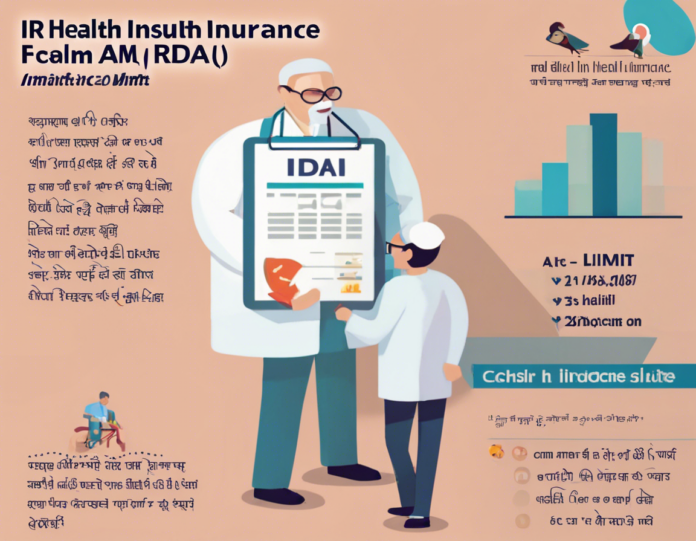Health insurance is a crucial aspect of financial planning, especially as one grows older. As we age, the importance of having adequate health insurance coverage becomes more apparent, given the potential increase in medical expenses. However, there are certain age-related restrictions and limitations that one must be aware of when it comes to health insurance in India. The Insurance Regulatory and Development Authority of India (IRDAI) sets guidelines and regulations for the insurance sector in the country, including health insurance age limits. In this article, we will delve into the nuances of health insurance age limits set by IRDAI and how they can impact individuals looking to secure health insurance coverage.
Understanding Health Insurance Age Limits
Minimum Entry Age
The minimum age at which an individual can purchase a health insurance policy varies across insurers and plans. Generally, the minimum entry age for health insurance in India is 18 years, although some insurers may offer specific plans for children or infants with a lower entry age.
Maximum Entry Age
The maximum entry age refers to the oldest age at which an individual can purchase a new health insurance policy. IRDAI has set the maximum entry age for health insurance at 65 years. However, some insurers may offer policies with a higher entry age limit, catering to the needs of senior citizens.
Renewability
IRDAI mandates that health insurance policies must offer lifelong renewability. This means that once a policy is purchased, the insurer cannot deny renewal based on the age of the policyholder. Even if the policyholder develops health issues later in life, the insurer is obligated to renew the policy. This provision ensures that individuals can maintain continuous health insurance coverage as they age.
Senior Citizen Health Insurance
For individuals above the age of 60 or 65, depending on the insurer, senior citizen health insurance plans are specifically designed to cater to their unique healthcare needs. These plans often offer higher coverage limits, lower waiting periods, and specific benefits tailored to the elderly demographic. It is essential for senior citizens to opt for health insurance plans that address age-related health risks comprehensively.
Pre-Existing Diseases
Health insurance policies typically come with a waiting period for covering pre-existing diseases. IRDAI guidelines specify that insurers can impose a waiting period of up to four years for coverage of pre-existing conditions. It is crucial for individuals, especially those in older age brackets, to disclose their pre-existing conditions accurately when purchasing a policy to avoid claim rejections later on.
Premiums and Age
One factor that significantly impacts health insurance premiums is the age of the policyholder. As individuals grow older, the risk of developing health issues increases, leading to higher premiums. It is essential for individuals to compare premiums across insurers and choose a plan that offers adequate coverage at a cost-effective premium, considering their age and healthcare needs.
Health Check-ups
Some insurers may require policyholders to undergo health check-ups, especially for individuals above a certain age, before issuing a health insurance policy. These check-ups help insurers assess the health risks associated with the policyholder and determine the premium accordingly. It is advisable for individuals to undergo these check-ups to ensure they receive the most suitable coverage.
Frequently Asked Questions (FAQs)
1. Can senior citizens avail of health insurance?
Yes, senior citizens can avail of health insurance. Many insurers offer specific health insurance plans tailored to the healthcare needs of the elderly population.
2. Is there a maximum age limit for renewing health insurance policies?
No, IRDAI mandates that health insurance policies offer lifelong renewability, regardless of the age of the policyholder.
3. Do all health insurance policies cover pre-existing diseases?
Most health insurance policies come with a waiting period for pre-existing diseases. It is essential to check the policy terms and conditions to understand coverage specifics.
4. How does age affect health insurance premiums?
As individuals age, the risk of developing health issues increases, leading to higher premiums for health insurance coverage.
5. Are there any tax benefits associated with health insurance for senior citizens?
Yes, under Section 80D of the Income Tax Act, senior citizens can avail of tax benefits on premiums paid for health insurance policies.
In conclusion, understanding health insurance age limits is crucial for individuals looking to secure adequate healthcare coverage, especially as they grow older. By being aware of the minimum and maximum entry ages, renewability provisions, coverage for pre-existing diseases, and the impact of age on premiums, individuals can make informed decisions when choosing a health insurance policy. It is advisable to compare policies across insurers, consider specific senior citizen plans, and prioritize lifelong renewability to ensure comprehensive coverage throughout different stages of life.



